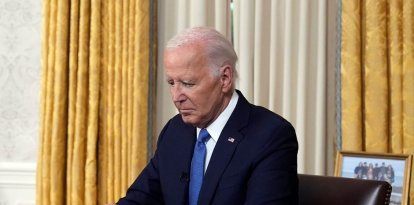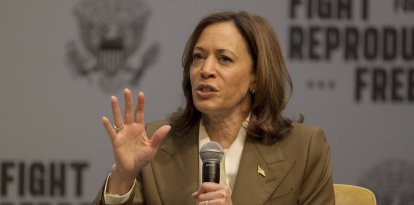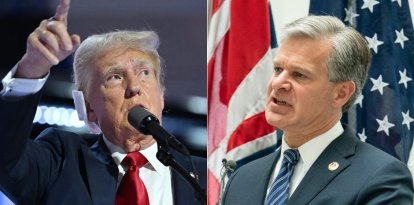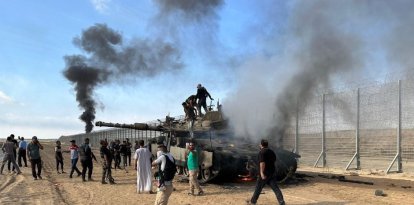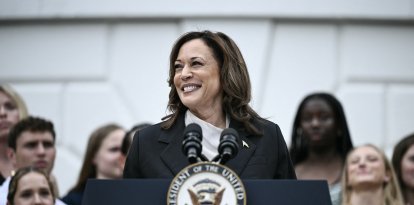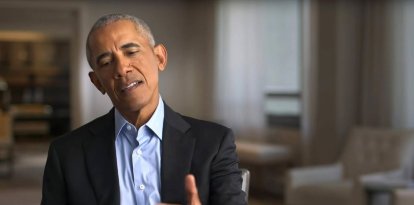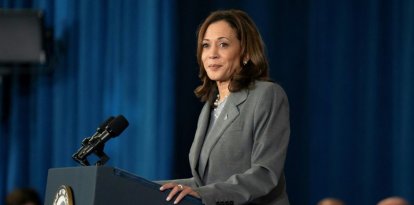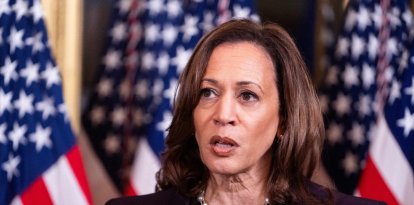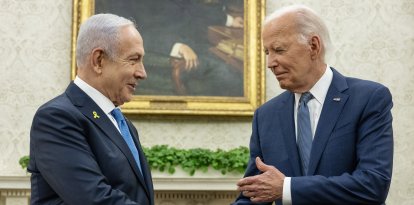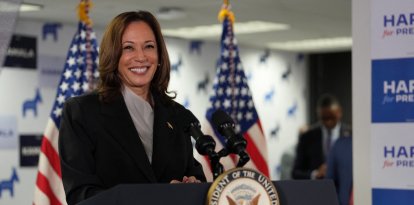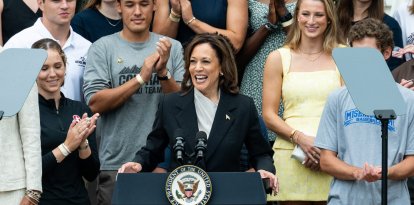Concern in Democratic Party over demobilization of black voters
Surveys indicate "frustration" in this community with the economic situation and gun policies.

Concern in Democratic Party over demobilization of black voters
The Democratic Party has another cause for concern heading into the midterms. Polls predict a notable decline among black voters planning to go to the polls on November 9, with members of this community being one of the main Democratic electoral supporters.
According to a poll by Politico-Morning Consult released in mid-October, only 25% of registered black voters were "extremely enthusiastic" about voting. In contrast, 37% of white voters and 35% of Hispanic voters opted for this label.
Fundamental to Biden's victory in 2020
Black voters played a pivotal role in the election of Joe Biden as president in 2020. However, Democratic strategists have realized that this communities perception is that things have not changed enough since then. In particular, with regard to the economy, gun violence, voting rights and criminal justice reform. Sixty-nine percent of black voters approve of Biden's job performance, according to the Politico poll, although this appears insufficient to guarantee a strong vote for Democratic candidates, according to party analysts.
Bishop Dwayne Royster, executive director of POWER Interfaith, the Pennsylvania-based progressive group that organized the voter registration drive in Philadelphia, corroborates this. "There’s a level of frustration that folk are experiencing right now, right? Let’s just be honest: For a lot of folk, they’re seeing incidents of gun violence that’s permeated their community. People are struggling with the economic conditions."
"Groundhog Day"
In the face of widespread pessimism, Adrianne Shropshire, executive director of the liberal group BlackPAC, which specializes in getting black voters to the polls, noted, "It’s like Groundhog Day. Six weeks out, people stick their heads out of their holes, and say, ‘We might have a problem with Black voters." That said, Shropshire acknowledges the Democratic Party "should have started a long time ago" to improve its communication with these voters.
To reverse this situation, former President Barack Obama will participate in events in Wisconsin, Michigan and Georgia. Also mobilized is Vice President Kamala Harris, the highest-ranking black woman in U.S. history, who has campaigned and fundraised for candidates across the country.
Obama and Harris to encourage voters
In addition, black candidates have been included in the lists of swing states according to the polls, seeking a nod to encourage this community to go to the polling stations. This is the case for Senate candidates such as Wisconsin Lieutenant Governor Mandela Barnes, Congresswoman Val Demings in Florida and former North Carolina Supreme Court Chief Justice Cheri Beasley. In Georgia, Senator Raphael Warnock is seeking re-election, and Stacey Abrams is running for governor. In Pennsylvania, Austin Davis is vying for the lieutenant governor's seat.
The fear of low participation from this community is not trivial. In 2016, lower-than-expected turnout in Detroit and Milwaukee was instrumental in Hillary Clinton's defeats in Michigan and Wisconsin. In 2020, Donald Trump did well in some large cities, such as Philadelphia, where he received slightly more votes in many majority-black districts than in 2016.
"That Trump is coming"
Molly Murphy, president of the Democratic polling firm Impact Research stressed the need to use truly motivational speeches for the black voter. For example, he conducted a poll in Pennsylvania that included an oversampling of reluctant black voters. Messages emphasizing that Trump tried to overturn the election, that voting Republican would signal to Trump that the "rule of law means nothing" and that "he can ignore our votes" registered as the most motivating to them. However, the official Democratic message on abortion did not elicit much reaction.













